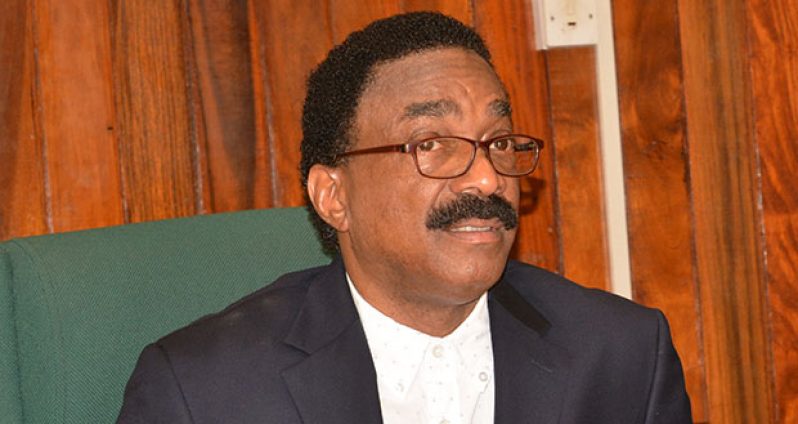THE Attorney General’s office will conduct a sensitisation campaign ahead of a Financial Action Task Force (FATF) delegation in September, which will examine whether this country is fully committed to implementing reforms to address money-laundering and terrorist-financing deficiencies At a recent meeting of FATF in Busan, Korea, the global monitoring body said, according to a release from the AG’s Chamber, “Guyana has fully addressed at a technical level, all the items on the Action Plan which was agreed with the FATF.”
Attorney General and Legal Affairs Minister, Basil Williams, represented Guyana at that meeting in June. The Legal Affairs Minister’s sensitisation campaign spans July 21 to August 4. Agencies considered as priority by the ministry include the Financial Intelligence Unit (FIU), and the Special, Organised Crime Unit (SOCU).
Also named are the Bank of Guyana; Cooperatives and Friendly Societies; the Guyana Securities Council; the Gaming Authority; the Guyana Revenue Authority (GRA); and the Guyana Gold Board. A number of banks, money transfer agencies, security companies, licensed gold dealers, and pawnbrokers are also named as priorities.
Currently, Guyana has an Anti-Money Laundering and Countering the Financing of Terrorism (AML/CFT) Act in place, along with other related legislation governing supervisory bodies, financial institutions, law enforcement, and foreign affairs.
The National Assembly, in May, passed the AML/CFT (Amendment) Bill 2016. In 2015, it had also passed the Anti-Terrorism and Terrorist Related Activities Bill; the AML/CFT (Amendment) Bill Nos. 1 and 2; and the AML/CFT Regulations, all in keeping with recommendations made by FATF and CFATF.
“Guyana has significantly improved its overall level of compliance, and, most importantly, Guyana has fully addressed the core and key recommendations,” CFATF had said during that plenary meeting.
In November, 2013, CFATF had identified Guyana as a country with significant strategic deficiencies in its AML/CFT regime.
By May, 2014, the regional financial watchdog body sounded an alarm, calling on member countries to safeguard themselves from Guyana.
“Members are therefore called upon to implement further counter-measures to protect their financial systems from the ongoing money-laundering and terrorist-financing risks emanating from Guyana,” CFATF had said, even as it announced its referral of Guyana to the FATF.
CFATF members were encouraged to enhance their due-diligence measures, introduce enhanced reporting mechanisms or systematic reporting of financial transactions; refuse the establishment of subsidiaries or branches or representative offices in Guyana.
Additionally, it was clearly stated that countries should minimise their business relationships or financial transactions with Guyana and even persons within the country.
But now that the tide is changing, the business community can expect Guyana’s removal from the ‘Light Grey List’ in the not-too-distant future.



.jpg)









